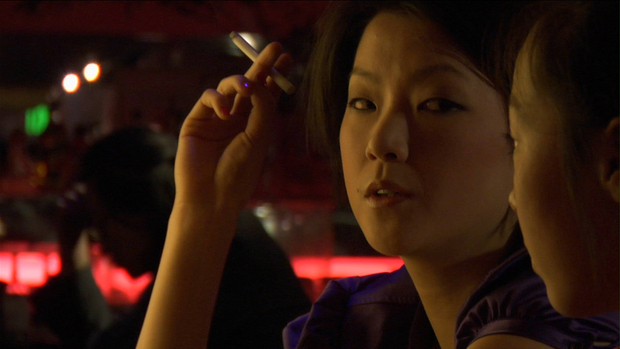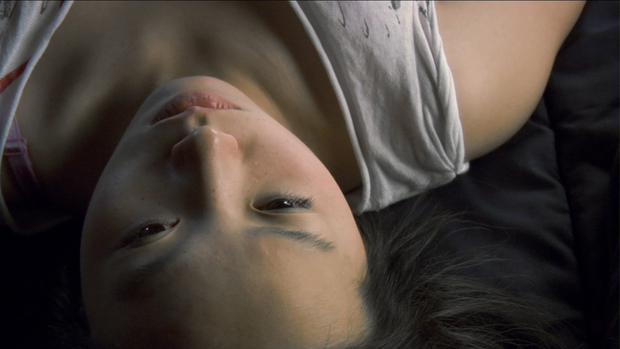

 The YouTube Screening Room, a nascent attempt at creating a free platform for the online distribution of independent films, is now opening its biggest feature to date, courtesy of director Wayne Wang. Having spent the last few years producing moderately successful, unremarkable mainstream movies like Maid in Manhattan, the Chinese-American director returns to telling stories from the Chinese immigrant community in his two newest films. The Princess of Nebraska, a low-budget counterpart to A Thousand Years of Good Prayers, raises the class of YouTube’s site; other shorts featured are in the order of Heavy Metal Jr., the tale of a prepubescent metal band, and Great White Hunters, which sells itself as a comedy for the Aussie fishing crowd.
The YouTube Screening Room, a nascent attempt at creating a free platform for the online distribution of independent films, is now opening its biggest feature to date, courtesy of director Wayne Wang. Having spent the last few years producing moderately successful, unremarkable mainstream movies like Maid in Manhattan, the Chinese-American director returns to telling stories from the Chinese immigrant community in his two newest films. The Princess of Nebraska, a low-budget counterpart to A Thousand Years of Good Prayers, raises the class of YouTube’s site; other shorts featured are in the order of Heavy Metal Jr., the tale of a prepubescent metal band, and Great White Hunters, which sells itself as a comedy for the Aussie fishing crowd.
Wang backed an online release of The Princess of Nebraska, which premiered in Toronto last year, thinking a free release would be in the spirit of the movie’s deliberately amateurish tone. It’s unclear whether anyone will make a profit from the YouTube deal, but Magnolia Pictures is hoping that its buzz will rub off on A Thousand Years of Good Prayers when it opens on Sunday
Naturally, this scheme would work better if the free movie was at least passably good.
Sasha (Ling Li), a young woman from Beijing, puts her studies in Omaha on hold to travel to San Francisco to get an abortion. She is met at the airport by Boshen (Brian Danforth), the middle-aged, American former lover of the man who got her pregnant, but abandons him to experience the city on her own. Fortunately, the movie doesn’t focus much on the weird love triangle between Sasha, Boshen, and the absent Yang. Instead it styles itself as a character study, following Sasha, who is in no actual hurry to abort the fetus, as she tries to make sense of the novel American concept of “moving on.” For a woman at Sasha’s point in life, this means befriending an outgoing karaoke hostess, seducing a businessman for the heck of it, and having a lesbian fling, all while keeping up an air of resolute indifference.
Wang likes devoting screen time to silent introspection and a notable lack of foreground noise—most of what speech there is is in Mandarin—emphasizes all the minute, ordinary shufflings that the consumer-grade cameras were able to capture. Don’t mistake this for a sympathetic film, however. Though a few moments are done with feeling, such as the key bedroom scene from which the movie gets its name, most of the tight, close shots of the characters suggest intrusion rather than intimacy. Sasha is never less approachable than when she wonders, however whimsically, if she should keep her baby because she’ll be able to sell it for a lot if it turns out to be cute.
It’s a pity that the movie fails to deliver on its promising trailer. It would be great if people could actually watch good movies while waiting for “We Need Girlfriends” or that umpteenth replay of kittens falling off pianos to load. But there’s a fine line between a performance that’s emotionally distant and one that’s emotionally nonexistent, and the remoteness of Sasha, Boshen, and the various bit characters is compounded by the fact that the movie takes ages to get anywhere. Both of Wang’s weekend releases are based off short stories by Yiyun Li, a young Chinese writer who studied immunology at the University of Iowa before defecting to the creative writing camp. Li is a fine writer, but maybe there are just some stories that shouldn’t make it out of print form. The viewer needs to care about Sasha to watch a movie like this, but she comes across as unapologetically sullen and self-absorbed. She is falsely childlike in the way she becomes preoccupied with taking a new camera phone video of herself or by riffling through someone else’s personal things. A dinner party argument about China shows her to be a product of a materialistic time. Her aimlessness and willful forgetfulness could be a political statement, if she just wasn’t so unconcerned.
Setting out to make a movie about an unsympathetic protagonist is obviously problematic. Yet Wang is not a thoughtless filmmaker. Maybe the point is not to pass judgment on Sasha herself, but on her generation. Unfortunately, it’s difficult to stick around long enough to figure that much out. In the end, The Princess of Nebraska is lacking in both character and momentum, and in releasing the movie online, Wang forfeited the luxury of a captive theater audience.









